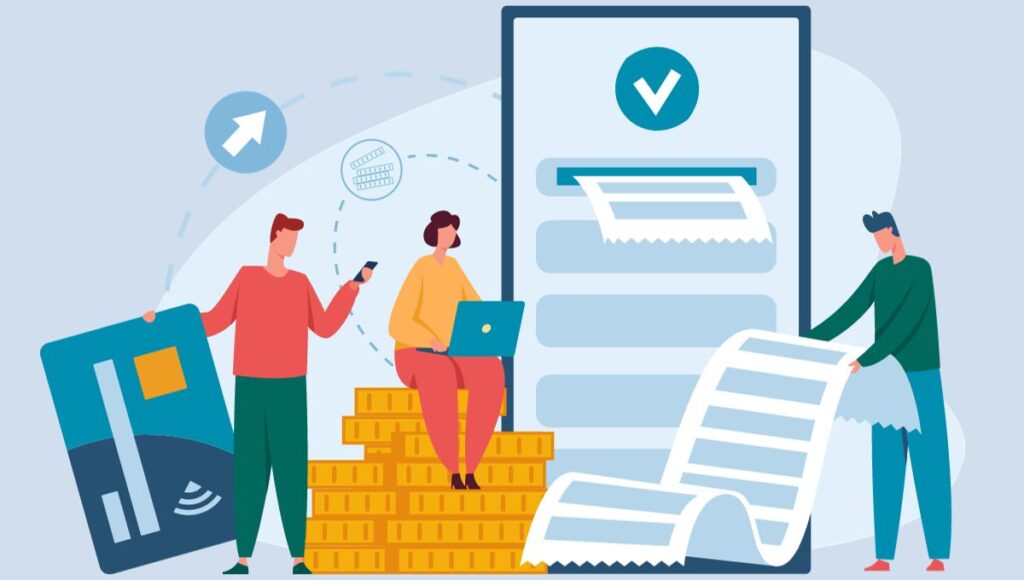Oct 4, 2023
4 Important Reasons to Pay for Content on the Web
Sources

To Pay or Not to Pay – That is the question. With so many free sources on the web should you pay for online content ?
Today we will explore when it makes sense to pay for online content.
Paying for Content

-Then –
In the last century we expected to pay for information. Books, newspapers, database access, magazines, reports, courses and movies had a price. Even “free” information was costly if you needed it on a timely basis. Government materials were a good example.
US public government information is free of charge because it is already paid for through taxes. Before the web, if you needed government information you travelled to the applicable office, waited in line to get the materials, then you had to either make copies or take notes, there were no phones with scanners and cameras. Alternatively, you may have sent a request letter and waited for the government office to send you copies of the materials.
If you couldn’t travel and wait or needed material quickly you hired professionals. These professionals included expeditors, lawyers and investigators that were physically close to the source of the material. So for example, if you were a business and needed to see the text of a new federal regulation you paid your Washington D.C. based attorney to send someone to the government office to get a copy of the regulation. The attorney’s office would fax or courier the material to you. Those fees added up and free information became expensive very fast!
Since access to materials was an ongoing issue there was an entire information industry built on locating, curating, packaging and distributing information. Lawyers paid to purchase books and to subscribe to services that aggregated laws and regulations even though the underlying material was free. Businesses paid publishers for materials that aggregated government reports and statistics even though that material was also free. All of this changed when the World Wide Web was invented and became a primary source for information.

-Now-
Today we are spoiled. In just over 20 years the landscape has changed completely. If you want a piece of government information you go to the appropriate website, locate the materials, download them and they are available almost instantaneously.
If you don’t know where to find something there are search engines, tutorials, free guides, experts and even social media to help guide you. Moreover, a tremendous amount of material is being created daily and directly on the web so this ever growing inventory presents additional opportunities for you to find what you need. With this huge amount of free content that is available by pushing a button, is there ever a reason to pay for information?
The answer is yes.
I have found that there are four major reasons to pay for online content. Each of these reasons can be further refined so you end up with a list of twelve (and you may think of more) situations in which it may make sense for you to pay for content. Here are the basic four:
- Easier
- Required
- An Upsell
- Only Available for a Fee
A Guide to Paying for Content on the Web

Easier – You may be able to find the materials but there are reasons why you should let someone else do the work:
- Convenience – You want someone else to find, organize, evaluate and package the material so you are willing to pay for that service.
- Expertise – You need information that is authored, analyzed or collected by an expert in a specific field. Some common examples are expert newsletters and reports issued by consulting or advisory firms
- Cost Effective – You need specialized data on an ongoing basis. Even if you can find it for free, it is more efficient and cost effective to pay for a subscription than for you to spend the time constantly retrieving current data.
Required/Almost Required – You can find it yourself but your regulator, industry standards or internal processes, dictate or strongly suggest that you pay for the information:
- Requirement – There may be a business or legal reason that you choose to pay for information. For example, if you are doing searches for a mandated compliance purpose it may be expected that you use a professional search program/service. The benefit being that you, and the regulator, know that there is consistency, accurate timing, a standard quality level and a built in tracking and retention mechanism.
- Sensitive Data – You may want a service to supply you with data that is sensitive and requires special handling so that you don’t need to be responsible for handling or retaining the data according to data regulations. Examples of this include credit checks and employee background checks.


An Upsell – When the basic level of content is free but to get something “more” there is a cost and it is worth it to you. The “more” can relate to time, transformation, or additional services:
- Urgency – Delayed data or older content is free, but current content requires payment. If you need the content in real time, there is a fee. Real time stock market information is an example of this type of data.
- Licensing – There are categories of information that allow you to use a copy for yourself but if you need to use the material commercially or incorporate it into something you create, you may be subject to a licensing fee.
- Official Documents – A government authority may provide information for free but if you want a certified copy of the information you pay for that service. For example, incorporation documentation may be available to review online but if you need a copy certified by the authority you pay a fee.
- Transformation – Information that is the result of analysis or some other type of transformation usually costs money. For example, as data set derived from the gathering and analysis of other data sets is often a paid product. The underlying data may have been free to but the derived data has a price.
- Creation – There is no obligation for a private creator to make their work available for free. If they sell their work and you want that work, you must pay.
Only Available for a Fee – There are other sources and types of information that are not free. Some typical examples are:
- History/Archival – Current information may be free, but historical or archival information may incur a fee. Some government agencies outside of the US charge for archival information.
- No Choice – Finally, there are sources that put their materials behind paywalls. If you want those materials from that source you have to pay for it. Examples of this are governments (outside of the US) newspapers, magazines and other subscription services.

Conclusion
You can’t perform diligence without information. The web has made a tremendous amount of content available at no cost. But that does not mean that you will never have to pay for digital material. There are valid reasons to pay for information. When you formulate your diligence research plan look at these 12 categories and decide if you need to allocate part of the budget to pay for information.


Subscribe for Diligence Updates
Get the latest updates, resources, offers, and more.
"*" indicates required fields
The Diligence File respects your privacy. Privacy Policy